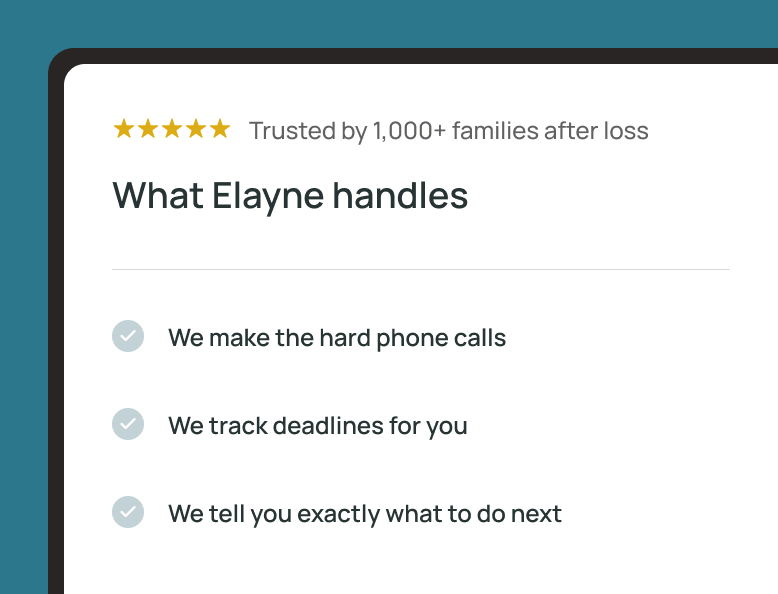Key Takeaways:
- A pronouncement of death is the official confirmation that someone has passed away.
- A legal pronouncement of death is required before a death certificate can be issued and any legal or funeral arrangements can begin.
- Understanding who to call and who can pronounce death, whether in a hospital, at home, or under hospice care, can reduce confusion and stress during a difficult time.
When a loved one passes away, the first step in the process of saying goodbye is something most people never think about until they have to: the pronouncement of death. This is the official, legal confirmation that someone has died. It’s a critical step, required before a death certificate can be issued, and before any funeral or legal arrangements can begin.
Whether someone dies in a hospital, in hospice care, or unexpectedly at home, it’s important to know who can pronounce death, what the process looks like, and why it matters. This guide will walk you through the different scenarios and help you understand how to get a legal pronouncement of death when the time comes.
What Is a Pronouncement of Death?
A pronouncement of death is the formal declaration that a person has died. It typically includes the time, date, and sometimes cause of death if it is already known. This is not the same as a death certificate, though it is a necessary step to obtaining one.
The legal pronouncement of death is essential. Without it, families cannot obtain a death certificate, make funeral arrangements, or initiate legal processes such as settling an estate or claiming life insurance.
Hospital Scenario
In a hospital setting, the process is usually straightforward. Doctors or registered nurses are typically the ones who pronounce death. If a person dies in the hospital, the attending medical staff will document the time and, if known, the cause of death.
Hospitals have established procedures to handle these situations. Once the legal pronouncement of death is made, the hospital staff will provide the necessary paperwork to begin the death certificate process. They may also help coordinate with a funeral home and provide guidance for next steps.
Hospice Scenario
When a person is under hospice care, the situation is slightly different. Whether death occurs at home or in a hospice facility, a hospice nurse can perform the pronouncement of death. This is one of the key benefits of hospice support—families do not need to call 911 or involve emergency services for an expected death.
After the nurse makes the pronouncement, they will contact the attending physician, who will confirm the details. The hospice team will then help the family coordinate with the chosen funeral home, ensuring a smooth and respectful transition.
Home Scenario (Unexpected Death)
If someone dies unexpectedly at home and is not under hospice care, the process becomes more urgent and involves emergency services. In this case, the first step is to call 911 immediately. Emergency responders will arrive to attempt resuscitation if appropriate, or to confirm death if it's clear. In many jurisdictions, paramedics cannot legally pronounce death unless certain criteria are met, so the coroner or medical examiner may be called to the scene.
Only after a legal pronouncement of death has been made can a funeral home take custody of the body. This can be a traumatic experience for families, but understanding the process can help reduce confusion during a difficult time.
Why It Matters Legally
A legal pronouncement of death is not just a formality—it has real legal consequences. It is required for:
- Issuing a death certificate, which is necessary for most official processes.
- Claiming life insurance or other death-related benefits.
- Starting probate or handling the deceased’s estate.
- Making funeral arrangements, including body transportation and burial or cremation.
Without this legal step, families are unable to move forward with the practical aspects of handling a loved one’s passing.
FAQs
Q: What is a pronouncement of death?
A pronouncement of death is the official confirmation by a qualified individual that someone has died. It includes the time and date of death and initiates the legal processes that follow.
Q: Who can pronounce someone dead?
It depends on the setting. In a hospital, doctors or nurses typically make the pronouncement. In hospice, a hospice nurse does it. In other situations, emergency responders or a medical examiner may be involved.
Q: Do I need a doctor at home to pronounce death?
Only if the death was expected and you are under hospice care. If the death is unexpected and occurs at home, call 911. A doctor may not be required immediately, but legal authorities must confirm the death.
Q: What is the difference between a pronouncement of death and a death certificate?
The pronouncement is the confirmation that death has occurred. The death certificate is the official government document issued afterward, which includes cause of death and is used for legal purposes.
Q: Why is a legal pronouncement of death important?
Without it, you cannot get a death certificate, access insurance or financial accounts, or proceed with funeral arrangements. It is the legal foundation for everything that follows after a death.
A pronouncement of death is one of the first legal and logistical steps when someone passes away. Whether it happens in a hospital, under hospice care, or unexpectedly at home, understanding the process and knowing who can pronounce death helps provide clarity in the midst of grief.
A legal pronouncement of death is essential for moving forward with funeral plans, settling estates, and obtaining necessary documentation like a death certificate. While this process may feel overwhelming, being prepared can offer some peace of mind during a deeply emotional time.












































